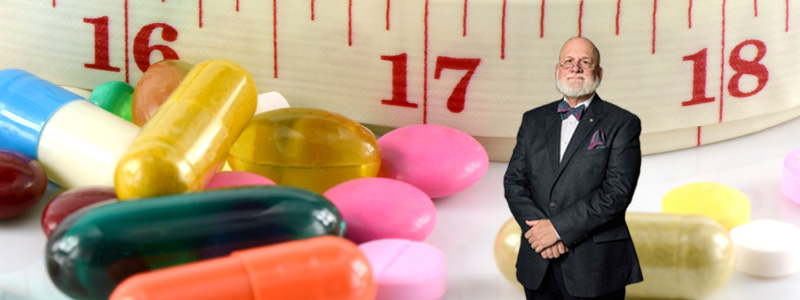OF COURSE!
Q: Hello – my 20-year-old daughter was diagnosed with genetic high cholesterol. Her total level was 250 with an LDL of 170. She is a healthy weight and very active. We have a family history of heart disease as both her grandfathers passed away from heart attacks one at 58 years old and one at 61. My husband has also had high cholesterol. Her primary doctor referred her to a cardiologist who of course wants her to go on a statin.
CAVEAT: I’ve been in the health “business” as a pharmacist since 1971 and I must point out
that my conclusions about health, cholesterol in particular, are at odds with the majority of
doctors working in the USA.
A: There exists a condition called familial hypercholesterolemia where cholesterol levels are exceptionally high (LDL of 190 to 400 – and higher). It is caused by a defect on chromosome 19, which makes the body unable to remove low-density lipoprotein (LDL)from the blood. The diagnosis is usually not made by merely testing serum cholesterol. There’s more to it. People who have the gene defects usually know about it long before they’re 20 years old.
If your daughter actually has the defect on chromosome 19, the treatment is aggressive and usually involves statin drugs, plus a regimen of regular exercise, and healthy eating. In some cases, the person may regularly receive LDL-apheresis (a procedure where LDL is physically removed from the blood).
Not too many years ago a cholesterol level of 250 was considered borderline high and doctors would recommend diets and regular followup. The suggested diet was often low in fats, but recent reports demonstrate that carbohydrates are more likely to increase cholesterol levels than are fats. Also, external sources of cholesterol (animal protein, eggs) have not been shown to increase cholesterol or LDL. Today, the recommended allowable laboratory levels are much lower.
Blood testing provides a snapshot of a person’s blood contents at a specific moment in time. Substances like cholesterol (and hormones) change regularly throughout the day and a single snapshot isn’t necessarily the best indicator of overall health. To me, a better approach is a series of tests, 2 to 4 times over a year. This approach can offer far better insight.
There aren’t alternative drugs or herbs or supplements that will reduce cholesterol and LDL, especially if the levels are truly elevated as they would be in familial hypercholesterolemia, those cases that absolutely demand intervention to bring levels down. Statins are the mainstay approach. Being healthy and active is our common goal.
I have never been a fan of statin drugs. Their side effect profile is bad and there is scant evidence that elevated LDL is a risk factor for heart attack. A recent report actually demonstrated just the opposite; a lower incidence of heart disease in patients with higher LDL. It’s a UK report and unlikely to be recognized by US doctors. However, anyone can gather important information for themselves by carefully reading it.
I cannot advise you to do anything but become informed and make the decisions that best suit your life. It is inappropriate for me to disagree with the doctor or even suggest your daughter disobey the doctor’s orders. The doctor is offering advice based on his/her education and conclusions. Visiting the same doctor again and accepting his/her orders implies you are in agreement with their approach. It’s futile to argue unless you’ve done your own research and meet the doctor with your reasons and decisions. That should open the door for a mature dialog between two interested parties. The final decision belongs to the patient and nobody – not even a medical doctor – should be allowed to force you to do something you don’t want to do.

